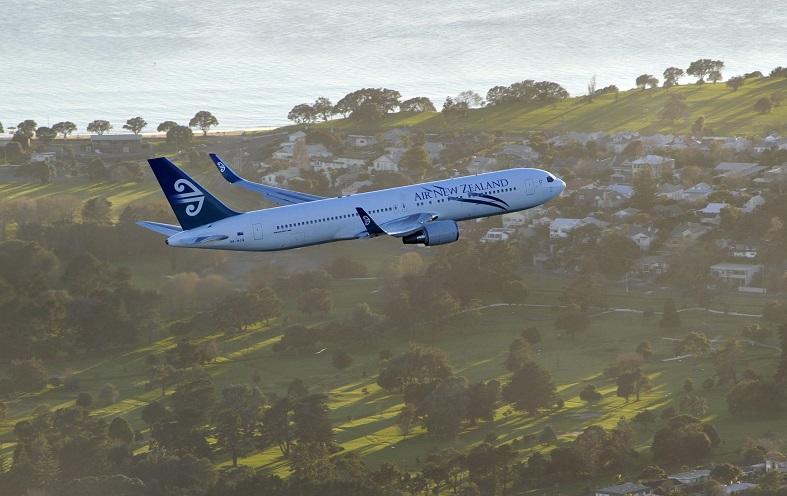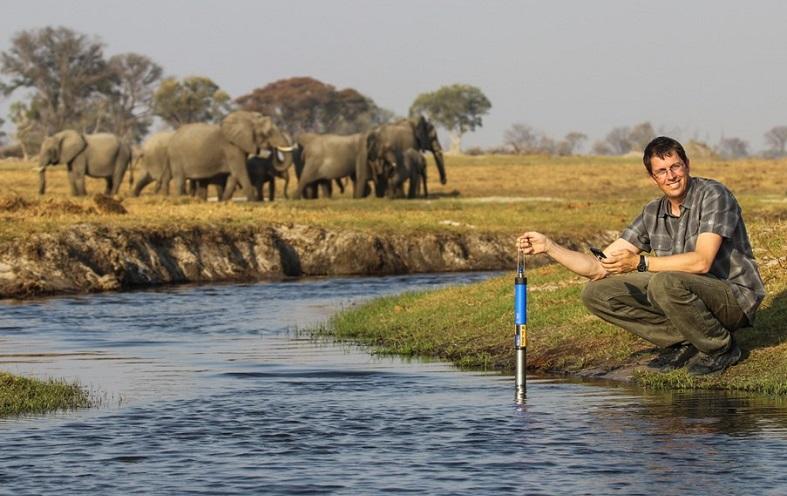 Airlines might not be the first thing that comes to mind when talking sustainability. Yet, they play an important part in gearing world’s growing tourism industry towards environmental sustainability. Over the last years, more and more airlines have started initiatives to improve their fuel efficiency, reduce their greenhouse gas emissions and to use latest aircraft, software and state-of-the art technology to enhance their sustainability performance.
Airlines might not be the first thing that comes to mind when talking sustainability. Yet, they play an important part in gearing world’s growing tourism industry towards environmental sustainability. Over the last years, more and more airlines have started initiatives to improve their fuel efficiency, reduce their greenhouse gas emissions and to use latest aircraft, software and state-of-the art technology to enhance their sustainability performance.
Air New Zealand CEO Christopher Luxon in this interview shares his view on the iconic national carrier’s sustainability challenges, successes and future ambitions.
Learn about:
- How airlines face the demanding challenge of reducing their carbon footprint;
- What it feels like to receive an international sustainable business award;
- The main sustainability challenges for airlines;
- What characterizes a sustainability leader in business.
Christopher, in 2013 Air New Zealand won the WTTC Sustainable Business award – how did it feel to achieve such an important international recognition?
It’s always nice to be acknowledged with awards, especially in that case as it was in comparison with other tourism organisations, not just airlines. There are some fantastic community and environmental initiatives within the global tourism industry and the businesses driving those initiatives provide an example for us all to aspire to, especially as the sector continues to grow rapidly and therefore brings with it environmental and social pressures.
But the thing with sustainability is you’re never the finished article, in fact we’re not even close. There’s always more to do to improve so we’re focused on that rather than reflecting too much on what has been achieved to date.
In your view, what is sustainability in business all about?
It’s about preparing us for the long-term, ensuring we can be a strong and vibrant business for generations to come. To do that we need to be commercially astute and run our business in a way that delivers value to our shareholders as well as enables us to reinvest in our people and our customer experience.
But we don’t operate in isolation, we’re part of a community and unless we operate in a way that also helps to drive our community forward, while also doing the best we can for the environment, we simply won’t have the opportunity to be a successful thriving business in the future.
Which sustainability aspect at Air New Zealand do you find the most challenging?
As an airline we obviously face a very real challenge to reduce our carbon footprint. Like most airlines we’ve got a range of initiatives in place – investing in a more fuel-efficient fleet, ongoing operational improvements, carbon offsetting – plus we’re also investing in climate science through the New Zealand Antarctic Research Institute.
It would be great if we could transition to a renewable fuel, preferably from a source local to our region, but achieving commercial scale at a competitive price is proving very difficult.
Under your predecessor, Rob Fyfe, Air New Zealand made positive headlines for pioneering tests with bio-fuels, but has since been overtaken by other airlines, e.g. United Airlines. How important is environmental sustainability leadership from a commercial/business perspective?
It’s important in a number of ways. Obviously a greater level of efficiency reduces costs, so the business case for things like improved fuel efficiency is a simple one. And as mentioned previously, there are brand benefits – both destination and corporate – from taking a leadership position.
But most importantly it’s about protecting our commercial interests for the long term. If we don’t improve our performance then the ability of the planet to absorb the scale of travel we’ve become dependent on will come into question.
New Zealanders will question whether tourism is a worthwhile sector and as such our social license to operate will be threatened. Customers will avoid air travel, especially long haul air travel. So making substantial improvements is vital for our long-term sustainability as a business.

What characterizes a sustainability leader in the travel business?
We’re a sector made up of a large number of very small operators, as well as several very large players. And we’re all dependent on the performance of each other, both from a visitor satisfaction and sustainability perspective. So collaboration is vital – we do a very good job of that with marketing New Zealand as a destination and we’re seeing the benefits through the growth we’re achieving.
However, we’re not yet achieving the same benefits of collaboration with regards to sustainability. So sustainability leadership in tourism, in our country, will be characterised by someone who first demonstrates best practice within their own business, and then brings the wider sector together to achieve improved tourism wide performance.
Thank you, Christopher.
Sustainability Initiatives at Air New Zealand
Air New Zealand received the WTTC Sustainable Business Award 2013 for initiatives such as:
- Investment in a young, fuel-efficient fleet
- Fuel efficient technology including blended winglets on B767 fleet, which reduce drag and zonal driers = weight on long-haul aircraft, improving efficiency and reducing CO2 emissions
- A tailored arrivals program at San Francisco Airport, using technology to ensure the most direct path to landing and a reduction in carbon emissions
- Commercial partnerships supporting the New Zealand Antarctic Research Institute and Department of Conservation
- The Air New Zealand Environment Trust which is committed to funding and supporting green projects around New Zealand
- A 3,500 strong internal Green Team which promotes environmental sustainability both at work and at home
- A groundbreaking bio-fuel test flight
Between 2006 and 2011, Air New Zealand achieved a 15% improvement in fuel efficiency, equivalent to more than 140,000 tonnes of carbon emissions annually. In 2012, CO2 savings totaled almost 145,000 tonnes or 57.7 million liters.
More about sustainability at Air New Zealand here.
Enjoyed our interview with Christopher Luxon on the sustainability strategy of Air New Zealand? Share and spread the word!











